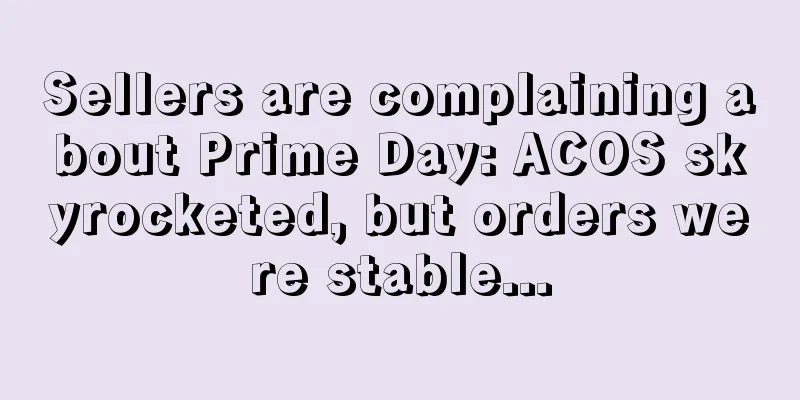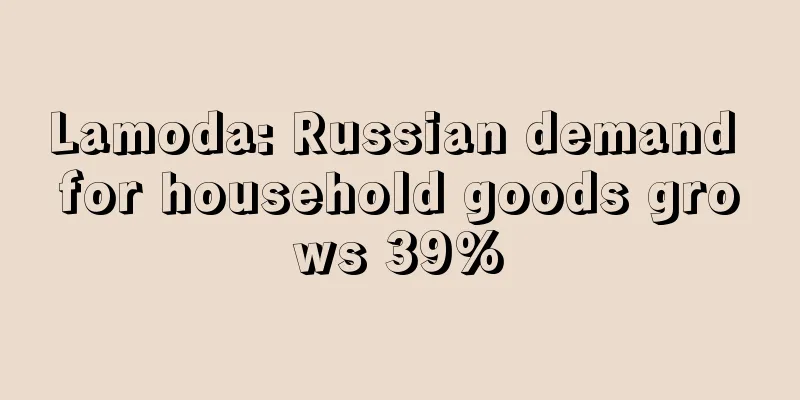Russian cross-border giants reduce commissions for "hundred-dollar products"! 80% of products will benefit

|
Yesterday, Ozon, one of Russia's largest cross-border e-commerce platforms, officially announced its new commission policy - starting from December, the commission for low-priced goods worth hundreds of yuan (RMB) will be reduced.
For "hundred-yuan products", the platform announced a reduction in commissions
According to the news released by Ozon's global official Weibo, the platform found that the Russian market has a strong demand for low-priced goods; on the platform, more than 80% of the goods are priced below 100 yuan (1,500 rubles).
Therefore, the platform decided to launch a policy of reducing the commission rate for products below 1,500 rubles from December 1, with the highest commission rate being 12%, and the commission rate for products above 1,500 rubles will remain the same. However, the commission rate will vary depending on the logistics method used.
Taking clothing and accessories as an example, for goods priced below 1,500 rubles, the commission rate for rFBS (self-delivery) service is 12%, and the commission rate for FBP (semi-hosted) service is 11%; for goods priced above 1,500 rubles, the commission for rFBS service is 20.5%, and the commission for FBP service is 19.5%.
According to what the platform mentioned in the notice, "more than 80% of the products on the platform are priced below 100 yuan", this adjustment is equivalent to reducing the sales commission for 80% of the products on the platform .
It should be noted that the price of this "hundred-yuan product" is calculated in rubles. According to the current exchange rate (at the time of writing), 1,500 rubles is equivalent to about 103 yuan, so sellers need to pay attention to the impact of exchange rate fluctuations. The platform also stated in the "Important Tips" that if the seller's product price is close to 1,500 rubles, it is recommended to appropriately reduce it by 3%-5% to ensure that the product still meets the standards of the new commission rate due to exchange rate fluctuations.
Regardless of whether it is an "important reminder" from the platform or in order to more securely enjoy this wave of "commission reduction benefits", it is estimated that many sellers will adjust the prices of their products that meet the policy requirements but are "on the edge of danger", which invisibly brings price advantages to the platform.
After all, although the price of a product priced at 1,499 rubles and a product priced at 1,501 rubles differ by only two rubles, the commission rate is very different. Taking clothing and accessories as an example, under the same self-delivery service, the commission rate for a product priced at 1,499 rubles is 12%, while the commission rate for a product priced at 1,501 rubles is 20.50%.
After seeing the notice of commission reduction, the editor looked through the previous commission policy (only for 2024) and picked out several categories for a simple comparison:
The editor's self-made commission comparison table (only for 2024)
As can be seen from the table, the platform has made two major adjustments to the commission this year. Except for "hundred-yuan products", the overall commission has not changed much (during non-activity periods), but has been adjusted in a more segmented direction. The first adjustment was to distinguish between logistics methods - rFBS and FBP were divided into different commissions; this time, an adjustment was made to the product price.
It is worth mentioning that in the comparison of categories selected by the editor, the commission of "hundred-dollar goods" in "clothing and accessories" has dropped the most. Although the market is different, it is inevitable to think of Amazon's commission reduction for low-priced clothing. This spring, Amazon announced that the commission for clothing below $15 will generally be reduced to below 10%, and the commission of the US site, which first implemented this policy, has been reduced to 5%. According to today's exchange rate, $15 is about RMB 109, which is roughly the same as Ozon's 1,500 rubles.
In the past two years, the platform has raised the commission rate several times.
Although the commission for goods below 1,500 rubles has been lowered , FBP sellers still have certain commission advantages , but old sellers probably still miss the days before the commission was significantly increased.
Based on the information on the Internet (the platform currently only archives the commission policy from November 2023 to the present), the editor summarized and found that before March 2022, the sales commission of some fast-moving consumer goods (pet products, household chemicals, children's products) and clothing was basically 5%, but after March 15, the commissions of these categories increased to 6%-8%; the sales commission of sellers participating in clothing promotions also increased from 5% to 8%.
Before August 2022, the platform's minimum commission was 3%; after August 1, the platform expanded the list of overseas sellers' product categories, updated certain product categories, and raised the minimum sales commission to 5%, but the highest ratio at that time did not exceed 15%. In addition to the commission, Ozon also announced that it would charge sellers VAT fees. Products weighing more than 1.31 kilograms or worth more than 200 euros per package are usually subject to a 15% VAT fee.
In mid-September 2023, the platform announced that it would increase the commission for various products again, with an overall increase of 1.5-4%; in some categories such as "cosmetics, daily chemicals, hygiene products and smoking products", the commission even increased by 5-6%. It is worth mentioning that at this time, some industry insiders speculated that due to various considerations, the platform might increase the sales commission ratio again.
Sure enough, in November, the platform adjusted the commission again. The commission of some categories was directly increased by more than 10%, and the highest commission ratio was close to 23%. Take the "Toys, Children's Sports" category as an example: before the adjustment, the commission of this category was 6%; after the adjustment, the category was subdivided into "Children's Sports Products" and "Toys", with commission ratios of 19.5% and 17.5% respectively.
The substantial increase in the platform commission means that the profit margin of sellers is compressed. The repeated increase in the platform commission has also caused dissatisfaction among many sellers. Coupled with the collection problem in the first half of this year, many sellers began to stay away from the platform. Perhaps in order to appease the sellers, the platform "cut" the commission by 50% in May this year. Some industry insiders joked that it was "sincere, but not much" - because this policy is only valid in May, and the commission policy will return to the original proportion after May.
The platform's decision to reduce the commission for low-priced goods was made with sincerity. A relevant person in charge said: " The platform hopes to encourage merchants to list more cost-effective goods by reducing the commission rate for low-priced goods , meet the needs of Russian consumers, and create more profit opportunities for merchants. "
In addition, although it was a coincidence, Ozon chose a good time to announce the reduction of commissions for low-priced goods - it coincided with the devaluation of the ruble. For Russia, the devaluation of the ruble has led to a sharp rise in domestic commodity prices, weakening the willingness of Russian consumers to buy; for sellers, exchange rate fluctuations have eroded the profit margin after settlement. Even if they are unwilling to give up this market, many risk factors make many sellers worried. The platform’s announcement of reducing commissions for goods below 1,500 rubles and the impact it brings is tantamount to injecting a shot of adrenaline into both sellers and buyers.
As one of the top three e-commerce platforms in Russia, Ozon's policy adjustments will not only affect sellers, but also the development of the entire market to a certain extent. Taking the commission reduction for low-priced goods as an example, other Russian platforms will inevitably respond in order to maintain their competitiveness; coupled with the current market environment in Russia, in order to allow sellers to operate with peace of mind, major platforms also need to show more sincerity. Under this background, sellers will be able to obtain a more favorable and stable operating space and environment. Russian Platform Low-priced goods commission |
>>: Shenzhen Dashao IPO failed!
Recommend
What is Zapier? Zapier Review, Features
<span data-docs-delta="[[20,{"gallery"...
Beware! Amazon is cracking down on fake orders, and a large number of sellers have been banned
Less than a month after work resumed after the Ne...
What is Big Cat International Logistics? Big Cat International Logistics Review, Features
Big Cat International Logistics brings together m...
What is samsdetailing? samsdetailing Review, Features
samsdetailing is a website that focuses on car det...
What is the Best Products Plan? Best Products Plan Review, Features
Handled by AliExpress is a self-operated buyer ex...
What is Rocksbox? Rocksbox Review, Features
Founded by Meaghan Rose in 2012, Rocksbox is a su...
CCI dismisses complaint against Shopee and Amazon
According to foreign media reports, India's c...
Amazon's internal competition escalates? Black hat sellers buy negative reviews to launch malicious attacks
Today, the editor learned from the Amazon officia...
What is Tianchuang Yida Supply Chain? Tianchuang Yida Supply Chain Review, Features
Shenzhen Tianchuang YiDa Supply Chain Co., Ltd. re...
What is UberZon Club
UberZon Club is an exclusive private group that p...
What is Wallapop? Wallapop Review, Features
Wallapop is a second-hand marketplace mobile app ...
What is Mitsubishi UFJ NICOS? Mitsubishi UFJ NICOS Review, Features
Mitsubishi UFJ NICOS , a member of Mitsubishi UFJ...
DTC brand The Honest Company files for IPO with a valuation of approximately $2 billion
Recently, DTC maternal and child care and beauty ...
What is Max Factor? Max Factor Review, Features
<span data-docs-delta="[[20,{"gallery"...
Black Friday in Canada loses its luster, with total retail sales down 6%!
According to foreign media reports, the fourth qu...









